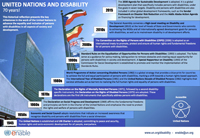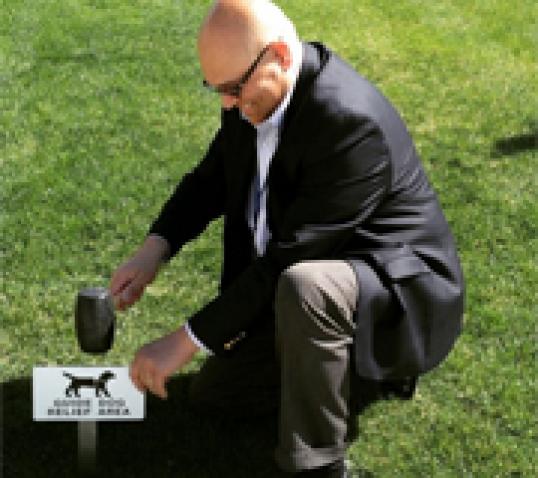Determined to be a lighthouse for creating a barrier-free and empowering world, the United Nations is leading by example – with the adoption of a new resolution by the UN General Assembly entitled “Towards the full realization of an inclusive and accessible United Nations for persons with disabilities”. The resolution calls for a comprehensive report on the current status of accessibility at the UN, as well as for input from a range of stakeholders, such as Governments, UN agencies, as well as from civil society organizations, including organizations of persons with disabilities.
“More and more countries get it,” UN Secretary-General Ban Ki-moon remarked at the opening of the International Day of Persons with Disabilities, in December 2015. “They are developing a better understanding of the importance of empowerment and equality for persons with disabilities in sustainable development. They are taking action in partnership with civil society and international organizations.“
The report will also draw on lessons and best practices from its stakeholder, as well as receive input from its staff with disabilities. The resolution is the latest in a series of measures, resolutions and agreements that will work towards creating an inclusive world for all.
 The United Nations' attention to accessibility changed dramatically after the adoption of the Convention on the Rights of Persons with Disabilities in 2006. Under a banner stating “Nothing about us, without us”, persons with disabilities and their representative organizations, alongside Governments and UN agencies, were actively involved in shaping global policy and recommendations towards the equalization of opportunities for persons with disabilities.
The United Nations' attention to accessibility changed dramatically after the adoption of the Convention on the Rights of Persons with Disabilities in 2006. Under a banner stating “Nothing about us, without us”, persons with disabilities and their representative organizations, alongside Governments and UN agencies, were actively involved in shaping global policy and recommendations towards the equalization of opportunities for persons with disabilities.Since then, the UN has implemented a myriad of small and big changes that make it easier for delegates and employees with disabilities to fully participate in the UN work environment. These changes range from the opening of an accessibility center at its Headquarters complex, to accommodating workplace arrangements that can allow for differently-abled persons to carry out their duties effectively, as well as instituting a UN Secretariat-wide policy on the employment of persons with disabilities. Last, but not the least, the creation of a guide dog relief area within the UN premises, a breakthrough for blind delegates using a guide dog and attending day-long meetings at the UN.
One of the major challenges that had to be addressed was the need for updating the UN building, a heritage property built in 1946. During the renovations, completed in 2013, persons with disabilities were invited to conduct accessibility walkthroughs of the UN building, reviewing everything from conference rooms to hallways, to offices and bathrooms, as well as providing feedback and making recommendations.
“Accessibility has been one of the original goals of the UN’s renovation project, and we are committed to making sure accessibility is incorporated throughout the project,” said Assistant Secretary-General Michael Adlerstein, Head of the Capital Master Plan that coordinated the entire renovation project of the UN Headquarters complex. “We are developing designs which not only meet or exceed code requirements, but also address the real life accessibility-requirements of all persons, whether delegates, staff or visitors to the United Nations.”
With the new report that will be released later this year, the UN is asking its stakeholder-community “what must we do, and how can we do it better”, which includes meeting needs for reasonable accommodation. It signifies yet another step towards full inclusion for persons with disabilities both within the walls of the UN, and beyond.
The preparation of the report will be facilitated by the Inter-Departmental Task Force on Accessibility (IDTFA), co-chaired by UN DESA that houses the Secretariat for the Convention on the Rights of Persons with Disabilities, and other UN Departments and Offices.

